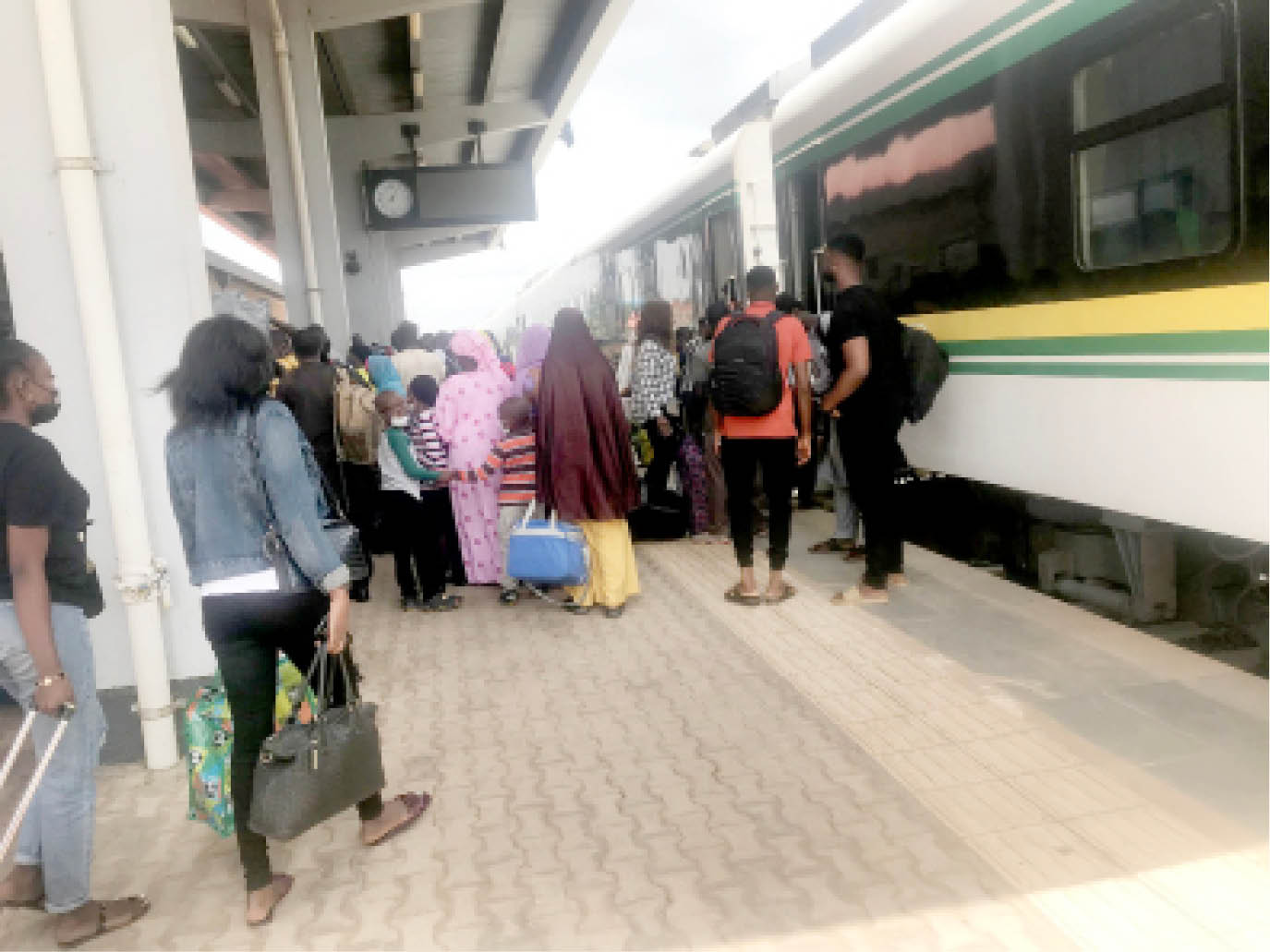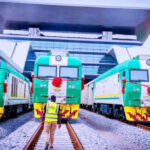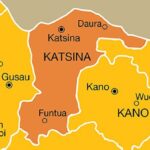Abuja-Kaduna train passengers have raised concerns over epileptic services since the aftermath of the attack on a passenger train on March 28, 2022.
At some point, the train service was the darling of many passengers, who found it as a convenient alternative to plying the Abuja-Kaduna road, which became deadly spots for bandits’ attacks.
However, since the attack on the train, which led to the suspension of the service, the fortunes of the train service have continued to dwindle even after the federal announced resumption of service.
The derailment of the train on the Abuja corridor in January this year did not help matters, as although nobody died from the accident, it has further discouraged passengers from patronising the service.
- May 29: NDLEA arrests 534, seize illicit drugs in nationwide raids
- Burna Boy’s album “Love, Damini” becomes his most streamed album on Spotify
Daily Trust Saturday learnt that the train service is no longer effective as it used to be and is greeted with low patronage and it presently runs one-trip daily from both ends.
Checks by our correspondent at the Rigasa station in Kaduna showed that the train service only runs one trip to and fro daily. The train leaves the station in Kaduna to Abuja by 3pm.
A passenger who frequented the train service in the past, Ibrahim Mohammed, said he no longer had patience to ply the train as it had outlived its purpose.
“I do a lot of business in the country’s capital, so I frequent Abuja a lot since my family is in Kaduna. When the train service was effective, I took the early morning train to Abuja after parking my car at the station. And after my deal for the day, I take the last train back to Kaduna.
“It was very convenient then because I also kept a car in Abuja, which I used when I got there. Instead of driving to Abuja, I relaxed and rested on the train ready for the day’s hustle. But with the epileptic service the train has been experiencing, I was forced to go back to plying the Abuja-Kaduna road,” he said.
He hoped the government would see the need to return the train service to how it was, as taxpayer’s resources has been used to make the service viable.
Another passenger, Hajiya Hajara Yusuf, said she tried on two different occasions to buy the ticket online but was unsuccessful as the application was down at one time, and the other time, the seats were fully booked.
She called on the government to check the operations of the train service and sanction earring staff.
She said, “When I leant that the train had derailed along the Abuja corridor two months after it resumed after the attack by terrorists, I was worried, but then, I was consoled when I learnt that no one lost their lives.
“It was shocking to learn, however, that the derailment was caused by human error on the part of the staff of the Nigerian Railway Corporation (NRC). I think the government needs to critically look into this matter going forward because many Nigerians have lost confidence in the train service which used to be so successful.”
The managing director/chief executive officer of the Nigerian Railway Corporation (NRC), Mr Fidet Okhiria, didn’t respond to a test message and call to his phone. However, a top management staff at the NRC said the reduced operations were based on the security concerns. Recall the facility came under terrorism attack, which led to the suspension of train operations for over eight months.
A top management staff who craved anonymity told our correspondent on the phone that the NRC is working to upscale the train services.
He noted that security was paramount; hence the downscaling of services.
He, however, said the NRC was up-scaling with an additional train by next week.
“We are introducing one more service to make it two from Rigasa and two from Abuja. That’s four services per day. We reduced our operating hours due to security.
“We no longer operate night services. We were doing 10 services per day before the attacks,” he said.

 Join Daily Trust WhatsApp Community For Quick Access To News and Happenings Around You.
Join Daily Trust WhatsApp Community For Quick Access To News and Happenings Around You.

